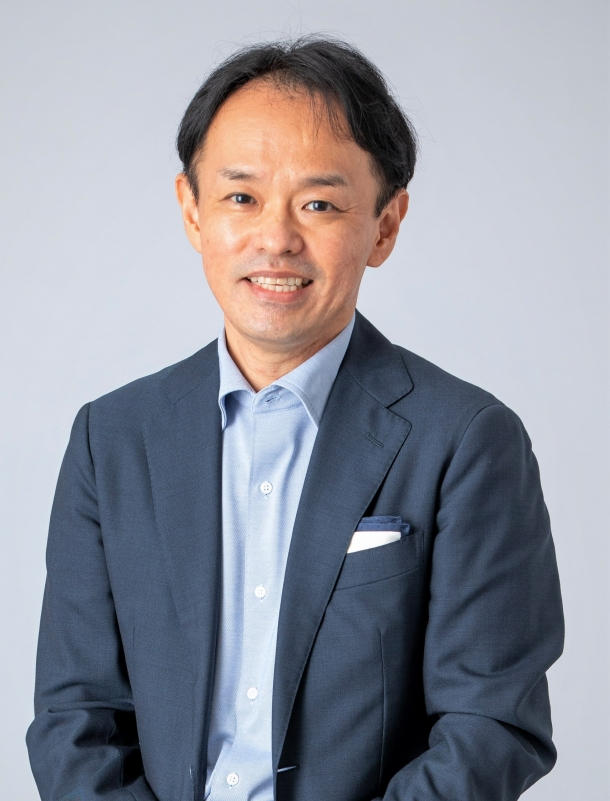
Graduate School of Asia-Pacific Studies Waseda University
NAKAJIMA Seio Dean and Professor, Graduate School of Asia-Pacific Studies, Waseda University

The Graduate School of Asia-Pacific Studies (GSAPS) was established in April 1998 with the aim of “researching history, politics, economy, industry, management, society, culture and international relations of the Asia-Pacific region through global and local interdisciplinary approaches.” GSAPS strives to embody the Mission of Waseda University, which is “to foster ways and means of utilizing knowledge side by side with the carrying on of academic research and learning, thereby contributing to the progress of civilization.”
Based on the above ideals, GSAPS provides an interdisciplinary curriculum across three areas of specialization—“Area Studies,” “International Relations,” and “International Development/Policy Studies.” Moreover, GSAPS possesses six unique characteristics, including 1) Bilingual education in Japanese and English, 2) An international learning environment with students from over 50 countries and regions, 3) A comprehensive research environment specially designed for graduate study, 4) Faculty with diverse, real-world experience, 5) Active support for international activities, and 6) A global network of active alumni. In addition, GSAPS works with the Waseda Institute of Asia-Pacific Studies (WIAPS), which actively promotes academic seminars, international conferences, WIAPS Research Group activities, publications, and the hosting of visiting scholars and researchers from all over the world.
GSAPS has numerous institutional partnerships with universities across the globe and pursues active international collaboration in research and education. GSAPS has partnerships with graduate schools of international relations, including the George Washington University Elliot School (U.S.A.), London School of Economics and Political Science Department of International Relations (U.K.), Graduate Institute of International and Development Studies, Geneva (Switzerland), Hertie School of Governance (Germany), Seoul National University Graduate School of International Studies (South Korea), and Chulalongkorn University Faculty of Political Science (Thailand). In addition, double-degree programs have been established with the School of International Studies, Peking University (China) and the Institute for European Studies, Université Libre de Bruxelles (Belgium). Moreover, the East Asian University Institute (EAUI) Program, developed and managed by Korea University, Nanyang Technological University (Singapore), Peking University, and Thammasat University (Thailand) in collaboration with GSAPS, aims to deepen regional integration and cooperation in Asia by fostering student learning through semester exchanges, summer schools, and seminars.
To support the advancement of international research and education programs, GSAPS has obtained substantial external funding through programs including the Japanese Ministry of Education, Culture, Sports, Science and Technology (MEXT) Global Centers of Excellence Program for the establishment of the Global Institute for Asian Regional Integration (2008-2011) and the Inter-University Exchange Project for the establishment of the East Asian University Institute (EAUI) for Asian Regional Integration (2011-2016). Currently, GSAPS has been selected for the MEXT International Priority Graduate Program (“Building Global Governance Capacity to Achieve S.D.G.s: An Asian-European Inter-regional Training Program”), the Japan International Cooperation Agency (JICA) Development Studies Program, and JICA’s project to establish a Master of Global Leadership at Vietnam Japan University.
Through the curriculum and programs described above, GSAPS has accepted students from more than fifty countries and regions since its establishment in 1998 and granted 3,702 MA degrees and 367 Ph.D. degrees (as of September 2022). The GSAPS graduates actively contribute to the betterment of global society, working in various fields, including research and education, government, business and industry, civil society, and international organizations.
The world-famous theoretical physicist Albert Einstein once reportedly remarked, “The value of an education in a liberal arts college is not the learning of many facts but the training of the mind to think something that cannot be learned from textbooks.”* This remark was made to address issues related to undergraduate education. These words, however, are equally fitting to describe the value of education in graduate schools, as we live in an age when a tap on a smartphone can collect an almost infinite amount of information in seconds but not make sense of it.
The students, administrative staff, and faculty at GSAPS come from highly diverse backgrounds and have multiple abilities and potential; one can participate in a global society by studying and conducting research at GSAPS. GSAPS is the ideal place for “the training of the mind to think something that cannot be learned from textbooks.” I heartily welcome you to join the GSAPS community and to become the next generation of global leaders.
*Philipp Frank. 2002 [1947]. Einstein: His Life and Times. Cambridge, MA: Da Capo Press. p. 185.
Link nội dung: https://blog24hvn.com/dai-hoc-waseda-a40742.html